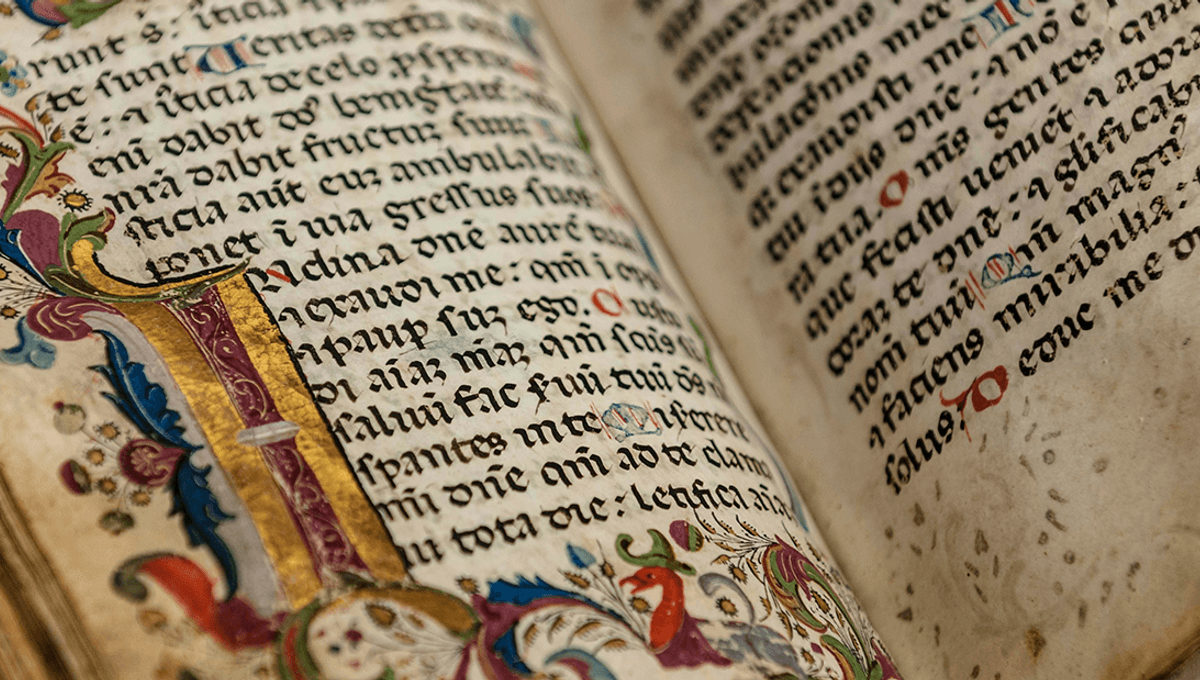
Languages evolve over time, prompting a great question: How far back in time could you go and still understand English?
If you were to speak to someone from the 1800s, or read a book from the same period, you would likely be fine. Sense and Sensibility (1811) remains comprehensible, for example, with some even claiming to be entertained by it.
Go back a little further though, and you will begin to struggle, partly thanks to what is known as the Great Vowel Shift, or Great Vowel Movement. From the 15th to 18th century CE, people English speakers began to pronounce their long vowels differently, making Middle English sound pretty alien to Modern English speakers.
During these centuries, there was “a chain of causally related upward shifts in the vertical position of the tongue – from low to middle and from middle to high – during the articulation of long vowels”, according to Encyclopedia Britannica. For example, the word “sheep” was pronounced in a similar way to the modern way of saying “shape”.
“During the Great Vowel Shift, the two highest long vowels became diphthongs, and the other five underwent an increase in tongue height with one of them coming to the front,” linguist Asya Pereltsvaig explained in a blog post on the topic.
“Thus, /i:/ became /aj/ (as in child and rise) and /u:/ became /aw/ (as in loud and mouth). Also, /e:/ became /i:/ (as in three and feet) and /o:/ became /u:/ (as in good and goose). Furthermore, lower version of /e:/ became /e:/ and later /i:/ (as in speak or beam) and the lower version of /o:/ became /o:/ and later /ow/ (as in holy and stone). Finally, /a:/ became /æ:/ and later /ej/ (as in name).”
To complicate it further, as English so loves to do, the same changes did not take place in all words (while some regional accents still retain old pronunciations). Couple this with structural and grammatical changes to the language in Old English, a Germanic language, and you’d find it difficult to understand the gist of the conversation if you somehow arrived in the 12th century (though we’d hazard a guess it would translate to something along the lines of “look, a demon has appeared, kill the demon” etc etc).
Of course, if you had time to study the language (as we do today) you would stand more of a chance.
So why this weird shift? Nobody really knows for sure, though there are a few theories flying around.
One is that a lot of people migrated towards London after the Black Death reduced the population significantly, resulting in a big mix of dialects and pronunciations in the capital. Another factor could be the expansion of the middle classes, who may have overdone their attempts to sound upper class.
But perhaps the most fun theory is that during wars against France, the English began to change the way we speak to move away from French pronunciations, changing the whole way of pronouncing a language simply to sound less French.
Source Link: The Great Vowel Shift: How Far Back In Time Could You Still Understand English?